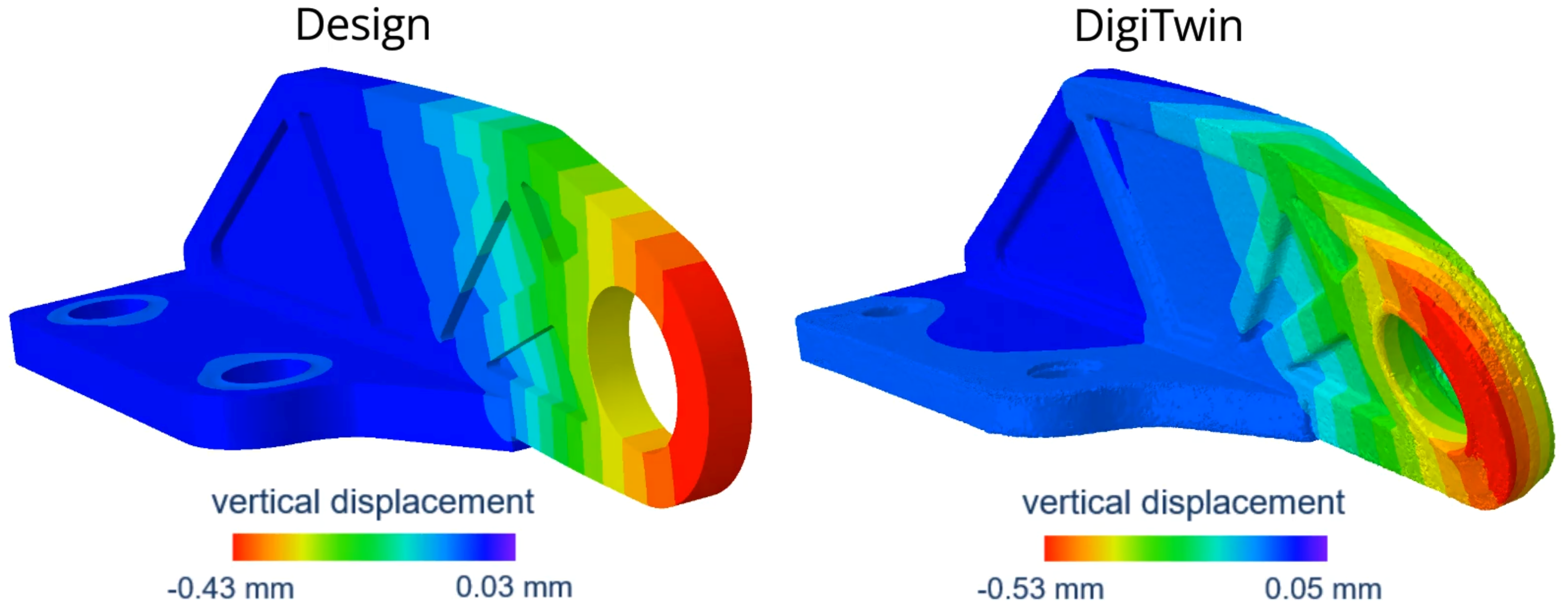Leveraging real 3D geometries of manufactured components is a game-changer for precise modelling and simulations. In practical manufacturing, parts often deviate significantly from idealised designs, impacting vital mechanical properties like stiffness, strength, failure behaviour, and long-term durability. This variation is particularly pronounced in additive manufacturing, especially when dealing with composite materials due to their intricate internal structures.
New Frontier Technologies have the capability to create digital twins of any component, not just those we manufacture, to provide you with a better understanding of its composition and performance.
Digital Twin (DigiTwin) offers a complete solution for imaging, analysis and simulation of composite components to identify defects and predict mechanical behaviour.

DigiTwin is able to identify several differences to the idealised design of the demonstrator hinge. The DigiTwin experiences 14.5% higher total deflection at the centre of the loading ring compared to the idealised design under the same 1 kN load. Significantly, the DigiTwin experiences twisting caused by the asymmetric fibre reinforcement introduced by the additive manufacturing process. This shows the benefit of the DigiTwin to detect defects in the manufactured part that are not predictable in the idealised design model.
Using DigiTwin for analysis and simulation of manufactured parts provides significant benefits:
- Accurate performance prediction
- Enhanced quality assurance in composites
- Cost efficiency through waste reduction
- Reduced development cycle and time-to-market
- Increased composite products sustainability
Similar Case Studies
Gridded Composite Rocket Body
We designed and manufactured a Gridded Rocket Body, Payload Module utilising the superior performance of an orthogrid structure.
Satellite Chassis
Partnering with key satellite manufacturers, we have developed a thermoplastic composite single-piece, join-free, cuboid structure. It was additively manufactured with high-strength carbon-fibres using our dual-laser automated fibre placement system.
Thermally Stable Satellite Strut
We designed and manufactured a 500mm tubular satellite strut with low CTE (Coefficient of Thermal Expansion) in accordance with space requirements that demand a maximum porosity of 1.5%.


